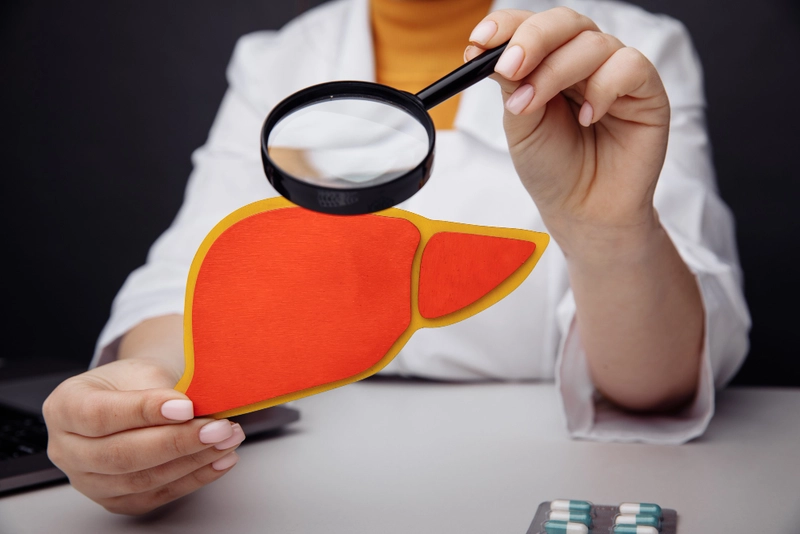- Published on: Jul 08, 2025
- 3 minute read
- By: Secondmedic Expert
Lack Of Sunlight And Mental Health Link: What You Should Know
Do you ever feel gloomy, tired, or anxious during the rainy season or in winter when sunlight is low? You're not alone. There’s a growing body of research that shows a strong link between lack of sunlight and mental health problems—including depression, anxiety, and fatigue.
In this blog, we’ll break down this connection in simple terms and help you understand why stepping outside for just 20 minutes of sunshine could boost your mood naturally.
Why Is Sunlight So Important?
Sunlight does more than just brighten our days. It plays a critical role in our physical and mental well-being by:
-
Regulating sleep through the circadian rhythm
-
Boosting serotonin, the “feel-good” hormone
-
Helping the body produce vitamin D, which supports mood and immunity
-
Improving alertness and reducing fatigue
When we don’t get enough sunlight—whether due to indoor lifestyles, long winters, or pollution—our mental health may suffer.
The Science Behind the Mood-Sunlight Connection
Sunlight impacts the brain's chemistry, especially serotonin and melatonin levels.
-
Serotonin improves mood, helps you feel calm, and supports focus.
-
Melatonin controls sleep and is produced when it's dark.
When you lack sunlight, serotonin production drops, while melatonin levels rise earlier in the day. This imbalance can cause:
-
Low energy
-
Sadness or depression
-
Irritability
-
Oversleeping
-
Poor concentration
What Is Seasonal Affective Disorder (SAD)?
Seasonal Affective Disorder (SAD) is a type of depression that occurs at certain times of the year—usually in winter when sunlight is limited.
Common SAD symptoms:
-
Feeling hopeless or down most of the day
-
Sleeping more than usual
-
Craving carbs and gaining weight
-
Losing interest in activities you usually enjoy
-
Low motivation and energy
SAD is real, and it affects millions worldwide—especially in places with long winters or low sunlight.
The Role of Vitamin D
Sunlight helps your skin make vitamin D, which is essential for your mood and immune function. Low levels of vitamin D are linked to:
-
Depression
-
Fatigue
-
Brain fog
-
Weak immunity
How do I know if I have low vitamin D?
You can take a Vitamin D blood test—available through platforms like SecondMedic.com with Thyrocare home collection.
Signs You May Be Affected by Low Sunlight
-
You feel sad or “off” during cloudy or winter days
-
You avoid going outdoors
-
You feel sleepy all day
-
You lose interest in daily tasks
-
You are deficient in vitamin D
If you check more than 2 of these, it’s time to focus on getting more light.
Simple Ways to Get More Sunlight and Boost Mental Health
1. Get Morning Sunlight
Spend 15–30 minutes in direct morning sunlight every day. This resets your internal clock and boosts serotonin.
2. Open Curtains and Use Natural Light Indoors
Let natural light into your home or workspace whenever possible.
3. Take a Walk Outside
Even a short daily walk can improve your mood.
4. Consider a Vitamin D Supplement
If your doctor confirms deficiency, a supplement may help restore mood balance.
5. Use Light Therapy
In areas with very little sunlight, light therapy lamps mimic natural light and can reduce SAD symptoms.
Related Lab Tests (Available on SecondMedic)
To understand how sunlight impacts your health, consider these lab tests:
Vitamin D Test
Check your vitamin D levels and confirm if sunlight deficiency is affecting your mood.
Thyroid Profile
Low sunlight can affect thyroid function, which is closely tied to mental health.
CRP Test (C-Reactive Protein)
To check if inflammation is contributing to fatigue or mood issues.
All of these are available for home sample collection through SecondMedic.com.
Conclusion
It’s easy to overlook how much sunlight affects our mind. But science clearly shows that regular exposure to natural light improves mood, energy, and mental clarity.
Whether you're feeling low or want to prevent future problems, just a few minutes of daily sunlight can make a big difference.
If you’re concerned about the lack of sunlight and mental health link, start by stepping outside—your brain will thank you.
Read FAQs
A. Yes, reduced sunlight exposure is linked to lower serotonin levels, which can lead to low mood, anxiety, and even depression.
A. SAD is a type of depression that usually occurs in winter months when sunlight exposure is minimal.
A. Sunlight boosts serotonin (the “feel-good” hormone) and helps the body produce vitamin D, both of which support emotional well-being.
A. Yes, if your mood issues are linked to low vitamin D, supplements (as advised by a doctor) can help improve symptoms.
A. 15–30 minutes of morning sunlight exposure is usually enough for healthy vitamin D and mood regulation.
Our Services
Request A Callback
Recent Posts
Can Fatty Liver Be Reversed Completely?
Jul 31,2025
How Your Sleep Schedule Affects Digestion
Jul 28,2025
How to Spot Signs of Hormonal Imbalance in Men
Jul 26,2025
Do You Need a Digital Detox? Signs and Symptoms
Jul 25,2025
How Walking Daily Affects Your Blood Pressure
Jul 24,2025










